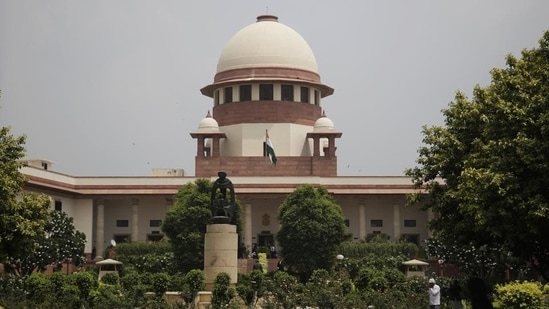Governor’s Powers in Legislative Process Under Scrutiny
The Supreme Court of India is currently examining the powers of Governors in the legislative process. This scrutiny arises from petitions filed by the Tamil Nadu government concerning delays in the Governor’s assent to state Bills. This situation marks ongoing tensions between state governments and the constitutional role of Governors.
Context of the Dispute
- The Tamil Nadu government argues that delays in the Governor’s assent undermine democracy.
- The Supreme Court is considering the implications of Article 200 of the Constitution of India.
- This article mandates the Governor to act on Bills presented by the state legislature promptly.
Role of the Governor
The Governor is meant to be an apolitical figure. However, the Supreme Court has previously limited the Governor’s powers. Generally, the Governor must act according to the advice of the Council of Ministers. Exceptions exist, such as when recommending President’s Rule or granting assent to Bills.
Article 200
Article 200 outlines three options for the Governor regarding a Bill
- Give assent, making it law.
- Withhold assent and return the Bill for reconsideration.
- Reserve the Bill for Presidential consideration.
- If a Bill is returned, the Assembly can amend it or re-pass it. The Governor must then grant assent unless the Bill undermines High Court powers.
Recent Developments in Tamil Nadu
Since Governor RN Ravi’s appointment in September 2021, the Tamil Nadu government has raised concerns about delayed assent. In November 2023, the state approached the Supreme Court, citing Bills pending since January 2023. The Supreme Court has reminded Governors of their non-elected status and urged them to act without delay.
Legal Issues Under Review
The Supreme Court is considering several key issues:
- The Governor’s authority to withhold assent after a Bill has been re-passed.
- Whether the power to refer Bills to the President is unlimited or restricted.
- Factors influencing the Governor’s decision to refer Bills instead of granting assent
- The validity of the “pocket veto,” where assent is indefinitely delayed.
- The necessity for a specific timeframe for granting assent under Article 200.
Supreme Court’s Perspective on Timeliness
Although Article 200 requires prompt action, it lacks a specific timeline. The Supreme Court has addressed this in past rulings but has not set a formal deadline. In a notable case, the court indicated that the Governor cannot delay assent indefinitely and must return Bills with recommendations.
Key Facts About Governor of the State
Role and Position
- The Governor is the highest constitutional authority in a State.
- They serve two roles:
- Titular (Nominal) Head of the State Government.
- Representative of the Central Government in the State.
Powers of the Governor
The Governor has Executive, Legislative, Financial, and Judicial powers, similar to the President of India but without Diplomatic, Military, or Emergency powers.
Executive Powers
- All State government actions are carried out in the Governor’s name.
- Can set rules for how government business is conducted.
- Appoints:
- Chief Minister and Ministers (who serve at their pleasure).
- Advocate General of the State.
- State Election Commissioner (can be removed only like a High Court judge).
- Chairman and members of the State Public Service Commission (can be removed only by the President).
- Can request information and suggest matters for discussion in the Council of Ministers.
- Can recommend President’s Rule in case of Constitutional breakdown in the State.
- Acts as Chancellor of State Universities and appoints Vice-Chancellors.
Legislative Powers
- Can summon, prorogue, or dissolve the State Legislature.
- Addresses the Legislature at the start of a new session or term.
- Sends messages to the Legislature regarding bills or governance matters.
- Appoints Presiding Officers in case Speaker, Deputy Speaker, Chairman, or Deputy Chairman positions are vacant.
- Nominates members to the State Legislative Council (experts in literature, science, art, etc.).
- Before 2020, could nominate one Anglo-Indian member to the Legislative Assembly (ended by the 104th Amendment).
- Decides on disqualification of legislators in consultation with the Election Commission.
- When a bill is passed by the Legislature, the Governor can:
- Approve it.
- Withhold assent.
- Return it (unless it’s a Money Bill) for reconsideration.
- Reserve it for the President if it affects the High Court, Constitution, national interest, or Directive Principles.
- Can issue Ordinances when the Legislature is not in session.
Financial Powers
- Ensures the State Budget is presented in the Legislature.
- Money Bills require prior approval of the Governor before being introduced.
- No grants can be requested without the Governor’s recommendation.
- Can authorize emergency funds from the State Contingency Fund.
- Forms a State Finance Commission every five years to review local body finances.
Judicial Powers
- Can pardon or reduce sentences for crimes under State laws.
- Consulted by the President for High Court judge appointments.
- Appoints, promotes, and transfers district judges in consultation with the High Court.
- Appoints other judicial officers in consultation with the High Court and Public Service Commission.
Month: Current Affairs - February, 2025
Category: Legal & Constitution Current Affairs








